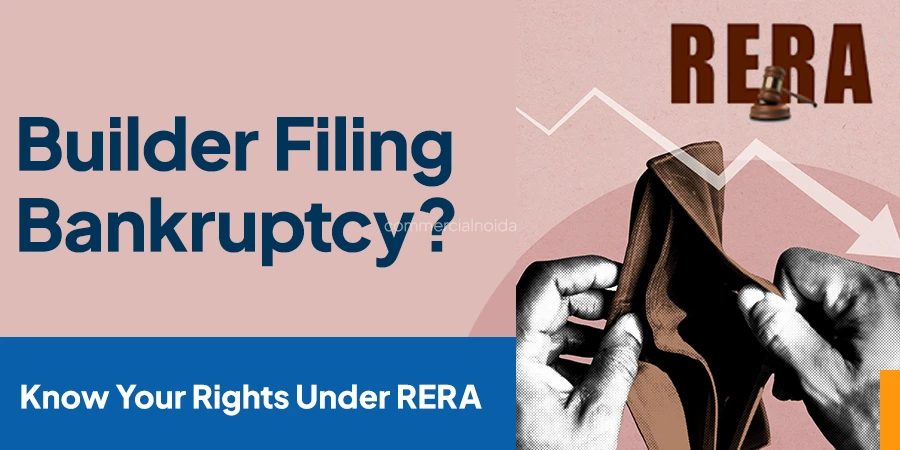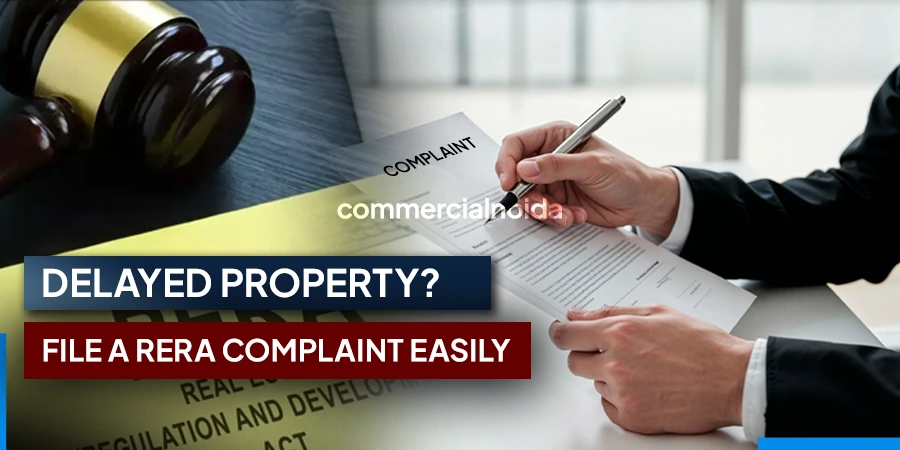
Know Your RERA Rights If Builder Declares Bankruptcy
Homebuyers face various issues in their journey to acquire their dream home. When a builder files for bankruptcy, homebuyers stand to lose everything— not just their money but also their dream home. The Real Estate Regulatory Authority or RERA, was established as a safety net for homebuyers who face such situations.
In this blog, we will find out how does RERA help homebuyers with its framework and what rights the homebuyers have in case of bankruptcy.
Before RERA
The RERA was formed under the RERA Act of 2016. Before that, homebuyers virtually had no rights during matters of insolvency or bankruptcy. There was an absence of regulations for the developers. Many projects disappeared, stalled, and were left incomplete. The buyers faced fraud quite regularly.
How does RERA protect buyers- The Financial Protection Framework
Escrow Accounts
The most powerful feature introduced by RERA is the maintenance of a compulsory escrow account. According to RERA, builders are required to deposit 70% of the money they receive from buyers into a dedicated escrow account, which can only be used for the construction cost or as land cost of that project.
Also, the money can only be released in stages as the construction progresses. The builder needs permission from the following before withdrawing funds:
• An engineer
• An architect
• A chartered accountant
This three-tier verification system ensures accountability from the builders because now they cannot misuse or mismanage funds. It significantly reduces the risk of bankruptcy.
Financial Transparency
RERA has made it mandatory for builders/ developers to:
• Share detailed information about the projects on the public RERA website.
• They are required to display regular construction updates and
• Disclose all information about the escrow account.
Penalties for Developers Who Misuse Funds
The following consequences are faced by developers who misuse funds:
• The registration for the project is cancelled.
• In case of mismanagement of funds or misuse, they are fined up to 5% of the total project cost.
• In case of false advertisement, they are fined up to 10 % of the project cost.
• Imprisonment for up to 3 years in case of misuse.
• Blacklisting from future projects.
Homebuyer’s Rights in Case of Bankruptcy
Despite the regulations by RERA, if a developer files for bankruptcy, homebuyers can take the following legal actions:
Refund and Compensation
Under Section 18 of the RERA Act, homebuyers can claim:
• A full refund of their investment with interest
• Compensation for delays or project failure due to financial issues
Legal Recognition as Financial Creditors
The homebuyers were given the status of ‘financial creditors’. When the Insolvency and Bankruptcy Code (IBC) was amended in 2018 by the Supreme Court in a landmark case- Chitra Sharma v. Union of India (2018).
As a financial creditor, a homebuyer can:
• Initiate insolvency proceedings against the defaulters.
• Represent themselves in the Committee of Creditors (CoC).
• Take decisions regarding the future of the project.
Although in 2020 an amendment brought certain limitations in a buyers rights, now either 100 buyers or 10% of total buyers (Whichever is less) need to apply together to start insolvency proceedings.
Project Revival Options
When a developer faces insolvency, RERA can:
• Transfer the stalled project to another developer with the homebuyers' approval.
• Facilitate the completion of the project rather than its liquidation.
• Include RERA representatives in the Committee of Creditors to protect homebuyers' interests.
Challenges in RERA Rules
Despite the various measures taken by RERA, there is still a gap in the relief for the homebuyers. Banks that are considered as secured financial creditors are still given preference in for refunds in accordance to Section 53 of the IBC. Due to this, as unsecured creditors, homebuyers still receive very less when cases are liquidated.
Moreover, RERA is still unable to resolve many cases and many projects are liquidated, leaving very little relief for the homebuyers. Although many reforms are still in progress, homebuyers are still not completely protected.
Conclusion
In case you are facing such issues with your builder, knowing your rights and the actions you can take is your best defence. To protect your property from any future complications, make sure you first verify the project’s RERA registration online before you invest, and stay alert about the progress of the construction. If you notice any delays or irregularities with the funds being used, promptly file a complaint with your State RERA Authority.































































































































.webp)

































































































.webp)
















































































.webp)
































































































